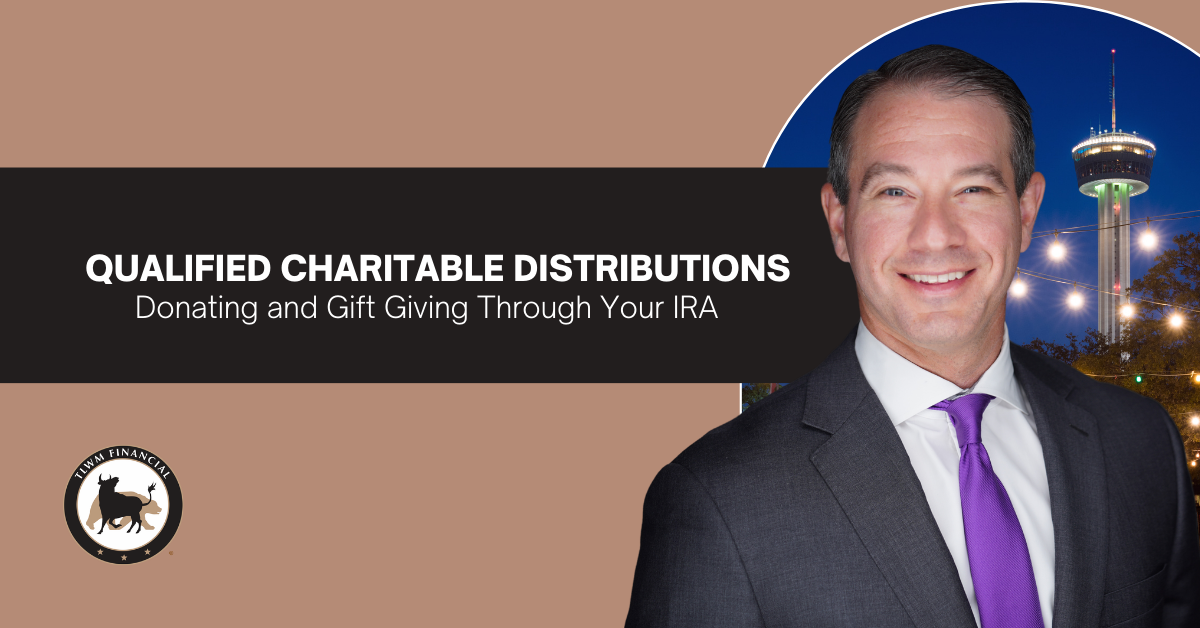Qualified Charitable Distributions: Donating and Gift Giving Through Your IRA
Submitted by TLWM Financial on March 26th, 2024
A qualified charitable distribution, or QCD, allows you to distribute funds from your IRA to an eligible charity (a 501(c)(3) organization) as long as you’re 70 1/2 years of age or older. Since the gift will go directly to the charity, you can exclude the dollar amount of the gift from your taxable income up to $100,000 each year. However, there are some exceptions, so it’s a good idea to consult a financial professional or tax advisor before pursuing this strategy. Here are the basics of using a QCD as a strategy to help you determine if giving in this way is appropriate for your situation.
Rules for QCDs
The IRS requires you to be at least 70 1/2 when making the QCD. You'll need to transfer the funds directly from your IRA to an eligible charity that the IRS has approved. You can find a list of approved charities on the IRS website.
The maximum amount you may donate is $100,000 per year. If you're married and your spouse also has an IRA, you can donate $100,000 individually. Keep in mind that you won't be able to share the limits, meaning you can't give $40,000 yourself and give $60,000 on behalf of your spouse, for example.
The tax benefits of QCDs
There are several substantial benefits of QCDs. After you reach age 73, you must withdraw a minimum amount from your retirement savings plans each year. These withdrawals are called required minimum distributions (RMDs). You can fulfill your RMD without increasing your taxable income with a QCD since you won't have to pay income tax on a QCD like you would if you took the distribution yourself.
Also, you won't take a tax deduction on the QCD since your QCD amount is excluded from your gross income. If you don't itemize your deductions but still want to receive some tax benefits, this strategy may make sense for your situation. Lastly, a QCD can help you to leave behind a legacy and support causes you believe in. Thanks to the tax savings QCDs offer, you can maximize your charitable impact.
Consult your financial and tax professionals
Your tax and financial professionals can help you determine whether a QCD is an appropriate strategy for you. Contact them today to get started.
Important Disclosures
The opinions voiced in this material are for general information only and are not intended to provide specific advice or recommendations for any individual.
This information is not intended to be a substitute for specific individualized tax advice. We suggest that you discuss your specific tax issues with a qualified tax advisor.
All information is believed to be from reliable sources; however LPL Financial makes no representation as to its completeness or accuracy.
This article was prepared by Fresh Finance.
LPL Tracking #1-05368236
Sources:
https://www.irs.gov/retirement-plans/retirement-plans-faqs-regarding-iras-distributions-withdrawals
https://www.irs.gov/publications/p590b#en_US_2019_publink100041439
https://www.irs.gov/retirement-plans/retirement-plans-faqs-regarding-required-minimum-distributions

